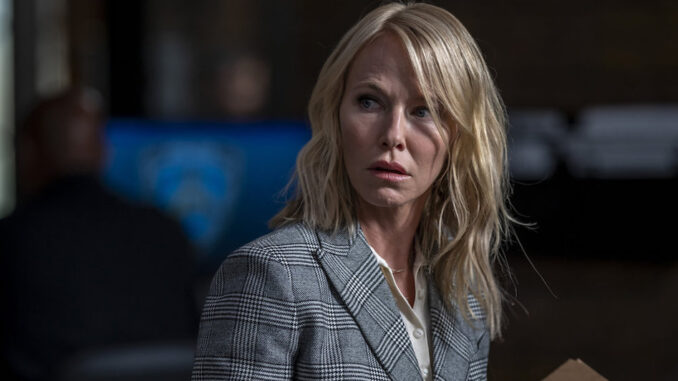
A Key Sliding into Place: The Resonant Rightness of SVU’s New Leadership
In the vast, often turbulent ocean of television, Law & Order: Special Victims Unit stands as an enduring lighthouse, its beam cutting through the darkness of human cruelty to illuminate stories of resilience, justice, and the fight for the vulnerable. For nearly a quarter-century, it has navigated the treacherous waters of trauma and recovery, often with a woman – Olivia Benson – at its helm, both on-screen and as its moral compass. So, when Kelli Giddish, the actress behind Detective Amanda Rollins, expressed her profound approval of the show’s first female showrunner with the simple, yet deeply resonant phrase, “It just feels so right,” it wasn’t merely a casual endorsement. It was an acknowledgment of a key finally sliding into a lock, a natural progression that echoes the very heart of the show and signals a quiet, yet powerful shift in an industry hungry for authentic representation.
From its inception, SVU has been an anomaly, a procedural crime drama that dared to place empathy and victim advocacy above sensationalism. It has consistently centered female experiences, from the survivors it portrays to the formidable women who drive its narrative – Mariska Hargitay’s Olivia Benson, the late Judith Light’s Elizabeth Donnelly, and Kelli Giddish’s own complex portrayal of Rollins. These women have not just solved crimes; they have grappled with the personal toll of their work, their resilience mirroring the struggles of those they seek to protect. Yet, for all its progressive storytelling, the leadership behind the scenes, like much of Hollywood, has historically been predominantly male. This isn’t to diminish the invaluable contributions of past showrunners, but rather to highlight a crucial missing piece in the puzzle of authentic storytelling.
The significance of a female showrunner, especially for a show like SVU, extends far beyond mere optics. It speaks to an inherent understanding, a lived or deeply empathized perspective on the specific nuances of sexual assault, domestic violence, and the myriad forms of gender-based injustice the series tackles daily. A woman at the creative and executive apex of SVU brings an invisible hand of intuition and experience that can subtly, yet powerfully, shape narratives, character arcs, and even the emotional landscape of each episode. It offers the potential for a deeper excavation of trauma, a more nuanced portrayal of victimhood and recovery, and perhaps, an even sharper lens through which to examine systemic inequalities that often disproportionately affect women. It’s about more than just writing; it’s about infusing every decision, from casting to directorial choices, with an informed sensitivity.
“It just feels so right.” Giddish’s words carry the weight of a natural truth discovered, a long-held subconscious desire finally met. It suggests a sense of alignment, a harmonious chord struck between the show’s on-screen mission and its off-screen leadership. For the women of the cast and crew, it must feel like a validation, an acknowledgement that their unique perspectives are not only valued but are now guiding the ship. For the millions of viewers, particularly women, who have found solace, understanding, and a voice in SVU, this shift resonates as an affirmation that their stories will continue to be told with an even greater degree of authenticity and depth. It speaks to a feeling of overdue recognition, of a glass ceiling not just cracked, but gracefully, powerfully, shattered by a woman whose vision will now shape the very fabric of this iconic series.
This moment transcends the confines of a single television show. It’s a quiet victory in the larger battle for gender equity in creative industries. It sends a ripple through Hollywood, reminding networks and studios that diverse leadership isn’t just a moral imperative, but a creative boon. It inspires aspiring female writers, directors, and producers, showing them that the highest echelons of storytelling are not only attainable but are actively seeking their unique voices.
In the end, Kelli Giddish’s simple declaration, “It just feels so right,” is more than a comment on a personnel change. It’s an illustrative insight into the profound impact of seeing oneself reflected, not just on the screen, but behind it, shaping the very narratives that define our cultural landscape. For SVU, a show that has always championed justice, this leadership transition feels like its own quiet, powerful act of progress – a key finally turning, unlocking an even more resonant future.
